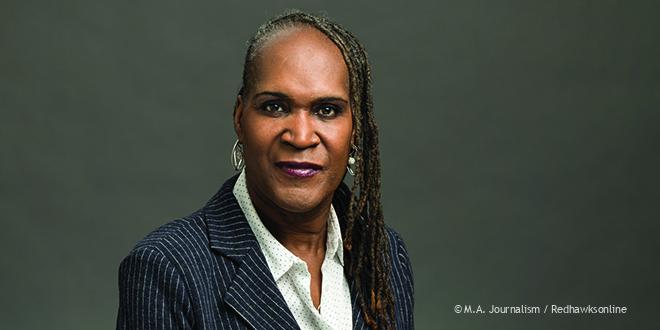What was your dream job when you were in high school?
My dream job in high school was to be a corporate lawyer. I didn’t know much at the time, but my thought was that if I was a lawyer I could help people get out of trouble or lead better lives. When you think about it, being a city council member is a role where I can [do those things], so this is my dream job.
Did you have a defining moment that made you go into politics?
There was a “Draft Andrea” campaign on social media, called Run Andrea, Run. It was pretty amazing. [The campaign] went up on a Monday, and within four days, four thousand people had come to the site…That was when I decided to run. It was also tied with the fact that Donald Trump was elected president last year, and the fact that I have 25 years of experience in public life advocating on behalf of marginalized people and transgender people and black people. For me, it just felt like the right moment.
What was the most difficult part of running for Minneapolis City Council?
It was all pretty difficult. Running for office is not easy…however, every race for political office is different. I was in a situation where I had tons of support – everybody thought I was going to win. [That being said,] It was kind of hard to keep people engaged. Most people thought I didn’t have an opponent, so I was worried about getting people to the polls to vote. [In hindsight,] I didn’t need to worry about that. I won 73% of the vote and increased voter turnout by 11% in Ward 8. That was pretty amazing. We worked hard to make sure that people weren’t complacent and that they didn’t think we didn’t have an opponent because we had three….they just weren’t working [as] hard.
Did you think that you were going to win?
I thought I had a very good chance of winning, but you know, I am a black transgender woman and a lot of people don’t like that. I live in a district that depends on having a lot of white people vote for me, so I was concerned that I would not get the support I needed, but my community proved me entirely wrong. They stepped up and supported me in ways that fill my heart with gratitude and pride that so many people saw my leadership, my experience, my commitment to the community as being much more important than my identity.
What advice do you have for students looking to make a difference in their communities?
Get involved! Go out and volunteer, learn about the electoral process, which is electing people to public office. I encourage people to find a candidate that speaks to [their] issues and support those candidates and help them out. Go door knocking, make phone calls…it’s important to have people included in our electoral process because if we don’t the current politicians are going to keep doing the same things.
How is politics different today from when you were younger?
I feel like people have gotten much more lax about the honor and dignity of the political office. Not to say that we have to be as formal as they were in the 1700s, but I think that we have to respect people more and respect the ideas that people bring forward. We need to have more faith that people are coming from a place of goodness as opposed to a place of nefariousness. That seems to be where we are deeply polarized now; everybody thinks the other side is trying to do something wrong and that is just not the case. You have to listen to people individually, one on one. I think some people are trying to do the wrong thing, but not everybody. We need to listen to people individually, and right now [we live in a world where people say], “Oh, you’re a Democrat, so automatically you’re bad,” or “Oh, you’re a Republican, so automatically you’re bad.” That’s a problem. We’re all human to start out with, so we have to recognize the humanity in everybody, and then…then we can move on. If that is the baseline we come from, that everybody is human and should be respected as a human being, then we can start to debate ideas. If we walk into the room automatically thinking everybody is evil, it just sets up a dynamic where you can’t have a full, intelligent discussion.
It feels like we’ve come so far in the fight for equality, yet some people are still against it. Why do you think that is?
It is easier to pit people against each other to maintain control, so I think that a lot of people try to keep racism going, to keep sexism going, keep disablism going, so that they can have more power and control over society. It’s an old tactic, and we keep falling for it: divide and conquer. It’s been happening since the beginning of time, and I’m working hard to try and change that. I know there were many people before me that worked to try and change it, and there are many people working to change it now, but the battle is hard. It is sad that after all this time humanity has been on the planet, we still haven’t learned that it’s only one planet, there is only one people, and there is only one love. We all have to love each other if we want to have a future on this planet together.

